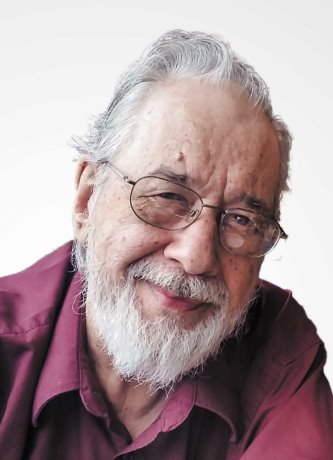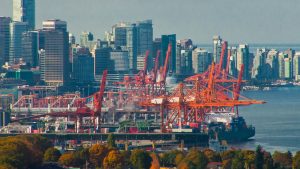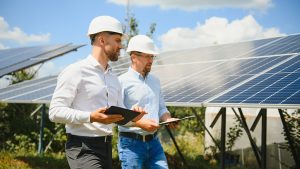When world governments agreed in December, 2015, to limit the rise in global temperatures to two degrees above pre-industrial levels, the world gave a collective sigh of relief. End of problem.
Except the problem wasn’t fixed. Most nations that agreed to limit their emissions of greenhouse gases have been noticeably silent since. Canada’s no different. Except for a cap-and-trade system here, a carbon tax there, there hasn’t been much talk about how we’re all going to survive 20, 30, 50, 100 years down the road.
Cities hatched plans to curb their emissions. Some are still working on them. Vancouver was quick off the mark, wanting to protect its image as one of the world’s greenest cities.
It adopted a Renewable City Strategy in 2015, followed by a Zero Emissions Building Plan in 2016.
Things were looking good in Vancouver. But the Energy and Materials Research Group at Simon Fraser University, recently did some modelling of economic and energy systems. Its report was released in mid-March.
The news was not good.
If Vancouver intends to meet its published climate objectives, the study says, some unpalatable and "politically challenging" measures will have to be taken.
The city’s Renewable City Strategy calls for an 80 per cent cut in greenhouse gas emissions on 2007 levels by 2050, and the use of 100 per cent renewable energy by the same date. That’s all energy. At the moment, only about 30 per cent of its energy comes from renewables, mainly hydro. The rest is mostly natural gas to heat buildings, and gasoline and diesel for motor vehicles.
The study found that the city’s present strategies are likely to achieve an emission reduction of only 30 per cent. It adds that even if the federal government were to steadily increase the price of carbon to $200 a tonne that would give another 25 per cent reduction. The total would still leave the city far short of its goals.
How to make further emission cuts? That’s where the "politically challenging" path comes in. It involves strong policies about switching fuels for both new buildings and vehicles.
For residential buildings, both new builds and retrofits, by 2030 there would be no boilers and furnaces that burn fossil fuel. Instead, there would be electric-powered heat pumps, solar hot water, electric thermal heat, or other zero-emissions equipment. Existing homes installing new gas-fired furnaces would be required to use biogas.
There would be similar restrictions on commercial and industrial buildings, but they would be allowed to keep using natural gas for non-heating purposes, like cooking. But even there, natural gas would have to be gradually switched to biogas by 2050.
And then there’s the part that would really hurt.
The city would gradually have to reduce the number of parking spaces for vehicles burning gasoline or diesel. That should begin by 2025, and by 2040 there would be no parking spaces for conventional cars on any city land. The report also suggests that to obtain a business licence from 2030 onward, businesses would have to show that their vehicles would be using only renewable energy.
It’s no surprise that some unhappy observers have already misrepresented what the city is planning. So I must emphasize that none of this is what the city is planning. It is not a policy proposal. It is a series of suggestions by a group of academics.
Would all those changes hurt? Of course. But the longer we delay action on climate change, the more it will hurt. Imagine how much easier it would have been had we started our transition away from fossil fuels a couple of decades ago.
This study shows the extent of the challenge faced by other cities looking for their own climate solutions.
If you want to read the entire report, it’s called Can Cities Really Make a Difference? Point your browser at http://bit.ly/2nub3VQ. That will take you to a link where you’ll find the report.
Korky Koroluk is an Ottawa-based freelance writer. Send comments to editor@dailycommercialnews.com.










Recent Comments
comments for this post are closed